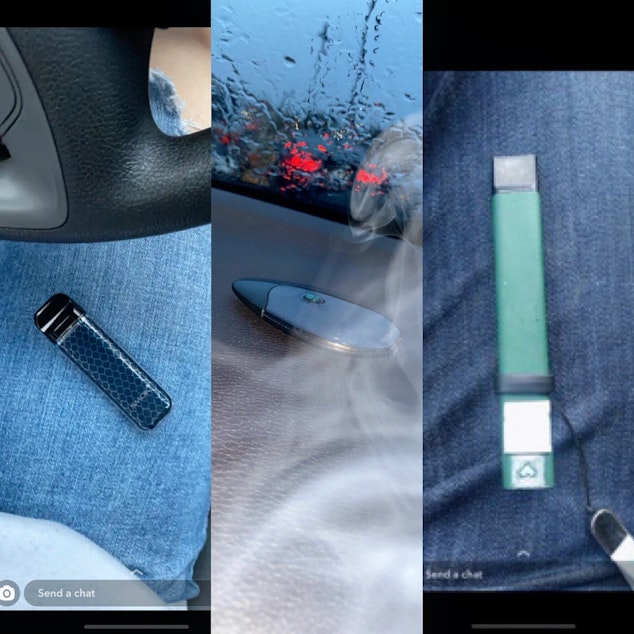How to get around the vaping ban? Ask a Seattle-area teenager
Seattle area teens said they have found ways around the temporary vaping ban and are still using.
But with a permanent ban on the horizon, complying small businesses face uncertainty.
When Washington state enacted a ban on flavored vaping oils last October, officials sought to protect users from chemicals linked to an epidemic of vaping-related lung illness. The Centers for Disease Control has documented at least 60 deaths since the outbreak was first reported last year.
Teens, whose use of the products has climbed in recent years, are considered especially vulnerable. Schools across the country have sued manufacturers, arguing that the industry has marketed improperly to youth.
But despite Washington’s efforts to keep vaping products out of their hands, local teens told KUOW they’ve found ways around the temporary ban.
"I don’t believe that stopping the flavors has stopped anyone," said Natalie Hoffman, a senior at Renton's Hazen High School. "If anything, it made people go out of their way to look for more ways to get it."
"I know a lot of people who just stocked up," sophomore Kaylen Harris chimed in. "Every little chance they could get they stocked up, and they are now selling it or going to different states, driving to different states to get more product."
Sponsored
Students also point to the internet as another method to get flavored vaping products.
"One of my friends, he found out that you could still go get products online, then he was like, 'I can go online and buy the product and you guys can just have it shipped to my house, no worries! I can drop it off to you,'" Hoffman added.

State officials are aware of this problem. The Washington State Liquor and Cannabis Board has a handful of workers enforcing the ban and the agency said they spend a quarter of their time monitoring online sellers. But with a number of businesses located out of state, enforcement has been challenging.
But students pointed to an unaddressed element to this ban: a culture and community of teens that have grown up around vaping.
Sponsored
High school senior Jordan Brew said messaging from health officials just isn’t getting through.
"I understand you’re trying to sway it further away from teenagers, but it had already been around for so long, I feel like a lot of them are still addicted," Brew said. "Simply taking away the flavored juices isn’t going to turn people away from it."
Some vapers imagine another likely outcome of the ban: a shift back to conventional cigarettes. It’s a scenario that health practitioners are also concerned about.
These bans are much easier to instate than it is to support users after they are addicted, said Vin Gupta, a pulmonologist at the University Of Washington School Of Medicine.
"When you’re having a conversation, like I do in a clinic," Gupta said, “a patient struggling over the course of months and years, who’s come off conventional cigarettes and … think they’ve found something, and we say they have to stop, makes me feel sympathy for the patient who is reliant on vaping as a harm reduction tool."
Sponsored
But as young people find workarounds for the ban, business owners are feeling the effects of decreased sales.
Yasir Shammar told KUOW his business has decreased by 70% since the ban was enacted. It has led to dust-collecting inventory and layoffs at City Smoke in Seattle’s Hillman City neighborhood.
There are more than 4,300 vapor licensees, like Shammar’s shop, in Washington. Due to the ban, they’re navigating a hazy future as the state considers a permanent ban on the industry's flavored products.
In Shammar's eyes, however, users are persistent and will take to the streets to find what they are looking for. He feels that bans do little to deter them.
Sponsored
Gregory Conley, president of The American Vaping Association, suggests that rather than hurting small businesses with a ban, there are better ways to keep vaping items away from teens.
"Require ID scanners, require bulk purchase limits, so you can’t have mini entrepreneurs who are getting older friends to purchase 40 different packs of pods and selling them on Snapchat,” Conley said. “That’s what’s happening with youth."
State legislators are working on legislation that could make the current ban permanent. The temporary order will expire in early February.




